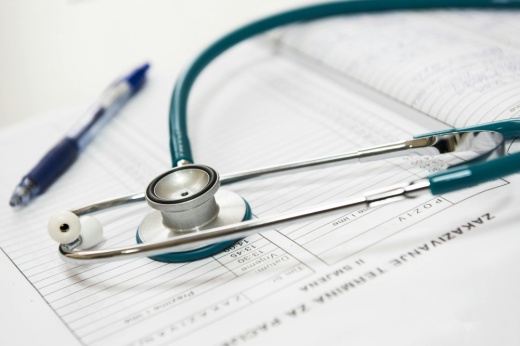A third-party performance audit of Central Health, the Travis County taxpayer-funded hospital district, indicates the organization has conducted business with no violations to the law—the subject of yearslong debate throughout the community.
However, during a presentation to county officials Sept. 10, commissioners voiced concerns with the fundamental agreements made by Central Health with the Dell Medical School at The University of Texas at Austin, or Dell Med.
The findings
Since 2014, Dell Med has received $35 million of taxpayer dollars annually paid by Central Health with the intent to support increased capacity for greater care of the area’s poorest residents.
A lawsuit filed in 2017 spurred some of the initial unease from community members regarding the hospital district’s handling of tax dollars. County commissioners officially authorized a $845,000 contract in 2022 with Mazars USA to conduct an independent performance audit of Central Health.
Per the report, a little more than 80% of that funding is used to pay staff salaries; however, Mazars was unable to link the salaries paid to a direct number of outcomes or number of patients served due to a lack of consistent documentation by Dell Med and Central Health.
“And I think that's the crux of the concern,” Precinct 2 Commissioner Brigid Shea said. “... There's money spent on clinicians, but you can't document that it's used for medical care for the poor.”
Precinct 1 Commissioner Jeffery Travillion joined in Shea’s apprehension.
“If we're spending money to create capacity, that capacity is supposed to serve the community, particularly the part of the community that historically has been underserved,” Travillion said. “If the money that we are extracting is to make sure that the community is served, then there should be some direct relationship between the capacity that is being built and the people that are being served, and we should be able to measure it in some way.”
Explained
Steve Herbst, a Mazars USA representative, said there are different understandings of the affiliation agreement between Central Health and Dell Med.
In a written statement to Mazars in September 2023, Dell Med wrote: “Use of the funds as payment for billable patient services does not qualify as a ‘permitted investment’ and was not the intended purpose of the funds under the Affiliation Agreement. Instead, the funds have been applied to support the development and operation of Dell Medical School and its administrative infrastructure; attracting, expanding, and retaining faculty, clinicians, researchers, administrators, and staff to provide services; and care coordination and management services.”
The report states that though the entirety of $35 million was not directly allocated for clinical care services, it enabled Dell Medical School to maintain and support the personnel and infrastructure necessary to provide medical education, conduct research and facilitate the delivery of health care services through its affiliated clinicians and facilities.
Mazars’ audit found that this use of funds by Dell Med abided by the terms of the agreement, but added that using funding for clinical care would also be a permissible use under the agreement.
However, the report also highlights there is no direct documentation of the “specific amount and type” of health care delivered by Dell Med.
“What we've pointed out in the general findings and conclusions are, [Central Health] has the bones here for a lot of opportunity, but we think there's room for improvement. It's incremental progress—to document better, to hold better accountability [for contracted entities],” Herbst said, referring to both Central Health and Dell Med.
Although Central Health has maintained reports over the years, Mazars noted that the metrics used in these reports have changed, making it difficult to accurately compare data year over year. This inconsistency affects categories such as the number of individuals served, incidents and subsidies, among other deliverables.
The impact
The report also captured community perceptions of Central Health, with many surveyed respondents expressing concerns about the effective use of taxpayer dollars.
“Central Health is wasting the funding they are given. More oversight should be done to prevent wasteful spending and elevated salaries for administrators. Salaries should be focused on direct caregivers—nurses, aides and technicians, instead of administrators and over paid directors,” one resident wrote.
The Mazars report suggests that Central Health enhance public transparency by providing information on the outcomes of local tax dollar spending on health care through highly accessible platforms for the public.
Ann Kitchen, Central Health board of managers chair, told commissioners the organization plans to implement the improvements outlined in the audit.
Newly appointed President and CEO Dr. Patrick Lee informed commissioners that Central Health has increased enrollment in its Medical Access Program, which provides care for the county’s low-income and uninsured population, by 36% since 2020, reaching a total of 85,701 enrollees this fiscal year.
In the last year, 12,211 unique patients at UT Health Austin, the clinical practice of Dell Med, used MAP, Medicaid or Medicare—38% of all unique patients, according to Lee’s presentation.
The Dell Med has contributed to the metro’s overall health care ecosystem, Lee said.
- 445 new doctors have been recruited to Austin
- 86 faculty researchers have been recruited, accompanied by $132 million in sponsored projects
- Over 230 medical students graduated
- 465 residents and fellows are in training
- Over 900,000 hours of clinical care have been provided
Central Health has proposed an 18% increased budget for fiscal year 2024-25, totaling $884 million.
The district's board voted for a new tax rate of $0.107969 per $100 valuation, or about $66 more per year on the average homeowner's property taxes, which is around $544 annually.
The Central Health budget will go before county commissioners for final approval Sept. 17, and the new tax rate will go into effect Oct. 1.





